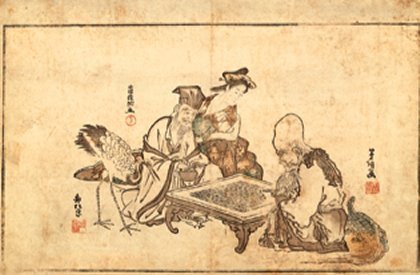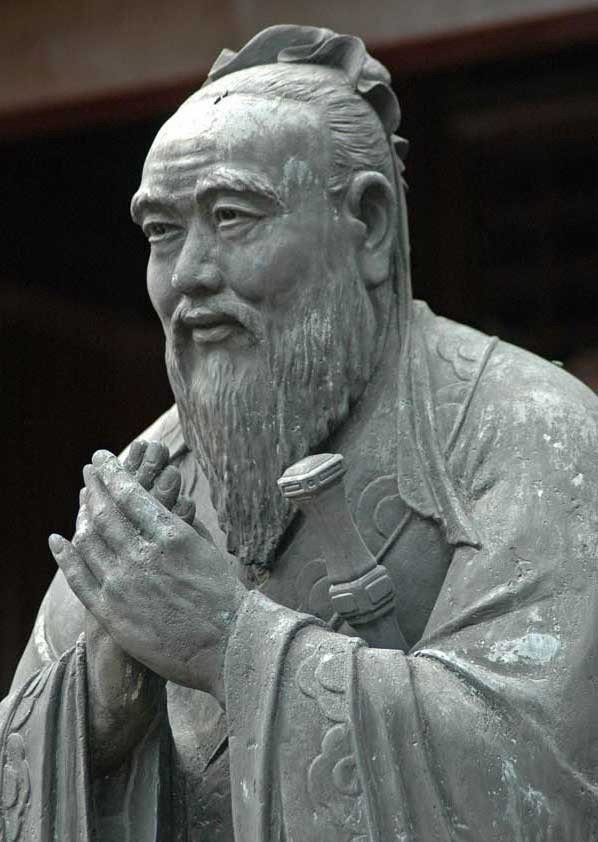'Purpose' Is Not A 7-figure Income

‘Purpose’ has become the new Personal Development industry buzzword. From DIY Podcasts to web-based workshops, it’s become the panacea to personal success. Aside from its current trend as a popular social media hashtag, it’s an ancient Chinese philosophical concept that stems from philosophical enquiries into the meaning of life and the Self.

Photo by Eli DeFaria on Unsplash
In the last couple of decades, there has been a fascinating crossover between the feel-good affirmations of the New Age Movement and the high-end corporate endeavour of Personal Development. The rise of social media networks have helped spread the gospel of these new prophets and teachers exponentially in the last few years. Platforms such as Facebook and Twitter have helped every erstwhile modern guru to spread their message far and wide freely, drawing in clients with open wallets to their sales funnels, high-priced training seminars and workshops. Big companies now hire speakers to empower and motivate their staff.
At the same time, the growth of research into neuroscience and human performance has revealed some eerie parallels into the ancient Eastern spiritual practices such as meditation, mindfulness, and the links between mind-body-emotion. Linguistics, psychology, and anthropology have also been appropriated in the pursuit of finding the magical formulas to make high-end corporate employees, management, and executives “fitter, happier, more productive.”
I’ve been straddling both worlds and observing what’s been going on from different perspectives. I find myself amused and bemused how ‘new’ discoveries in science reveal what many Eastern mystics have been writing and teaching about for millennia. What I find even funnier — and ironic — is how this idea then trickles through into sales copy for every Personal Development guru and Life Coach attempting to push their unique, authentic message.
#PurposeIsEverything
The latest tag making the rounds is Purpose. The idea usually goes something along these lines:
- The reason you try and try and try, and have yet to succeed is because you haven’t found your Purpose.
- Once you find your Purpose, everything will magically come together and you’ll have the Lamborghini and the 7-figure income with the 4-hour work week.
- The only way to find your Purpose is to do my 12-month online coaching course or 5-day intensive retreat (details for these will either be subtly mentioned throughout the copy of this post, or will be emailed to you periodically, seeing as you left me your email address in order to read this article).
Purpose isn’t the only concept to have been mined from the depths of Eastern spiritual practices. Remember the book The Secret, and its message of how you too have the power to manifest all the mansions and sports cars you want in your life? It’s all based on New Age re-interpretations of ancient Eastern philosophy.
Another recent commentary was Gary Vaynerchuck’s pronouncements that meditation was “The Game” that every budding entrepreneur needed to get into. After all, you’ve got be “in The Game if you want to win The Game.” He is of course referring to the research into mindfulness and meditation that shows to increase mental acuity and overall performance, what researchers and others refer to as Flow.Purpose as the carrot-stick
Around the First-World, hordes of 50-something-year-olds are leaving their high-paying, high-stress, corporate jobs and hitting the social media platforms. They’re ‘finding their Purpose’ and sharing their evangelical stories about it like St. Paul on the road to Damascus.
And now that they’ve found said Purpose, they will help you find your yours too; for a price. You will now make the money you’d never make as an employee (“working for the Man”), and live that dream lifestyle where your office is a MacBook Pro on the beach.

image source
I’m kinda making a bit of fun here of a stereotypical caricature that no one really falls for; maybe they don’t actually exist except in the imagination of writers such as myself who need an antagonist to draw comparison against. Although after nearly 20 years of this rhetoric, younger generations are being drawn to the ‘gig economy’ and entrepreneurialism instead of following traditional 9–5 careers.
The question I pose is this: what happens when you do all the personal development work, you dismantle your ego, confront your shadow, make the Hero’s Journey through the Underworld and bring back the treasure that humanity seeks, only to discover that your Purpose is something relatively mundane like, for example, taking care of children?
Is it realistic to expect that your Purpose of being a childcare worker bring you a 7-figure income?
Will you really be able to nurture children as a stay-at-home parent and sit on your MacBook Pro on the beach sipping cocktails?
“But the stay-at-home parent could build an online business with a passive income. The childcare worker could build an empire of hugely successful child-care centres employing only loving, caring, nurturing workers.”
Yes, that’s true. But does the building of a childcare centre empire fulfill the Purpose of taking care of children? Was your stated Purpose “to take care of children”, or “build an online business that netted millions of dollars in passive income?”
I’m not saying that one ‘purpose’ is better or morally superior to the other. Far from it. Perhaps building the childcare centre empire fulfills the Purpose of creating a 7-figure income, rather than that of taking care of children. After all, will you actually be performing the acts of taking care of children if you’re operating a multi-million dollar business empire, even if it is in the childcare industry?
Finding your Purpose is one thing; understanding how to fulfill it authentically make take a little more work.
Linking Purpose to financial gain is not a given. One can live a fulfilled life, and not earn a 7-figure income. And vice versa, of course. Purpose is something that lies on a different level, but does not exclude the possibility that it may well lead to that 7-figure income and lifestyle on the beach with cocktails and a MacBook Pro.
OK, so what is Purpose?
For the ‘purpose’ of this article, I’m going to present the idea of Purpose as it is from my interpretation of ancient Chinese philosophical literature. Specifically, the idea of 命 mìng which was known and contemplated during the Zhou Dynasty, around the period referred to by historians as the “Spring & Autumn Period” (around the 6th-3rd centuries BCE).
It’s important to note that these ideas are usually found in discussions about Taoism. Yet keep in mind that ‘Taoism’ was not really a thing until several centuries after this time. Confucius also wrote about these concepts in the 5th Century BCE as part of his body of work, and he was not a proponent of Taoism or a fan of the thinkers and scholars who became the foundations of what Taoism would later become. However, scholars and philosophers like Confucius, Zhuang Zi, Hui Zi, and Lao Zi (if he existed) all were familiar with the concept of mìng — these thinkers were part of a cultural paradigm that Chinese society was built upon during the Bronze Age.

image source
Purpose was referred to as tiān mìng, usually translated as “Mandate of Heaven”. It was originally described as the mandate given to a king to rule over the land by Heaven — the cosmic, mystical force which governs all the Universe, including the Earth and Human civilisation. Heaven itself was seen merely as the agent of the Tao, which included everything in existence and non-existence. So if a ruler was ruling with the “Mandate of Heaven” he was modelling himself after the governance of all existence. Mìng however is also understood as something more than merely a mandate (a set of orders).
For centuries the ancient Chinese believed that human society was part of a wider cosmic ecology, where the forces of Heaven (evidenced by the movement of stars, planets, constellations, and other celestial bodies), the wonders of Earth (all animal, vegetable, and minerals in the terrestrial sphere), and the actions and creations of Humanity (civilisation, basically) were interdependent and mutually benefited each other. All of it was part of something called the Tao.

image source
Commonly translated as “the Way”, the Tao (pronounced dao) was not imagined as a divine being or a deity, but the ‘way’ the universe was, an explanation of both function and form. Linguistically, the word is a verb and describes a worldview where process is the underlying raison d’être of all existence. Given this, it was also presupposed that the only constant that we could depend upon was that all phenomena continually change from one state to another:
“What is frail is easy to break… The most massive tree grows from a sprout; The highest building rises from a pile of earth…” — Tao Te Ching, chapter 64 (trans. Cleary)“I do not know its name.
I call it Tao.
Painfully giving it a name
I call it ‘great’.
‘Great’: that means ‘always in motion’.
— Tao Te Ching, chapter 25 (trans. Wilhelm & Ostwald)
Everything in existence (Heaven, Earth, and Humanity) has a mìng. Because everything that comes into existence — past, present, and (presumably) future — brings something unique and exquisite into the Tao. Its mìng is the understanding of the special role it will play. In an ecological-minded worldview, every part contributes in some way to the whole. One’s mìng is the description of that unique role. So, the king’s ‘Heavenly Mandate’ is his part to play as the agent of governance of universal laws amongst human society.
While some translate mìng as either mandate, destiny, or fate, I prefer to use the term Purpose. This removes the conceptual attachments to fatalism which get in the way of ideas around self-determination and free-will. It is a more generative term that gives us agency on our personal lives and the construction of (subjective) meaning to help with this agency.
Purpose is natural
Finding one’s mìng was considered a by-product of one’s explorations and journeying through personal development. The idea is that when one “knows thyself”, they discover their true nature which, when allowed to unfold and emerge naturally and spontaneously, will lead one to live effortlessly, and fulfill one’s Purpose.
The benefits of this are multi-faceted. Society becomes truly harmonious when all the members of it are living in such a way. All the members of such a society are contributing in the best, most authentic manner possible. And an individual lives happily ever after.
Effortlessness — wú-wéi — is not a passive laziness, but the capacity to live life in flow, including challenges and struggles. These challenges are met with the knowledge that they can be overcome or at least utilised for further personal evolution.
The other key thing about all of this is that it is never forced or contrived. Nearly every text that mentions these ideas makes that clear. You can’t deliberately live effortlessly, otherwise you are applying effort. You can’t force your true nature to guide your choices, otherwise it’s not spontaneous and natural.
“Before and after go along with each other. So sages manage effortless service And carry out unspoken guidance.” — Tao Te Ching, chapter 2 (Cleary, 2003, trans.)

image source
Confucius also wrote extensively on this in particular in his Analects. In fact, Confucius could be seen as the world’s first version of Tony Robbins. And like many Life Coaches, spent all of his life roaming the land trying to find employment with the ruling elite, and getting very grumpy that no one was taking him seriously (or paying him for it!).
For him, the development of morality and virtue in an individual was of the utmost importance for creating a harmonious society. Keeping in mind that he thought this was only necessary amongst aristocratic men, later philosophers (and even Taoists) extended these ideas to allpeoples, including women. One couldn’t just seek to have these virtuous qualities; it wasn’t something you could learn at the Academy or develop over a weekend workshop. It expressed itself naturally, through having understood your true nature and allowed it to be the guiding light to navigate your life with.
I’ve found my 'Purpose' — now what?!
If my Purpose is to ‘take care of a child’, building the child-care centre empire as a means to nurture a child may be more effort than is actually required to fulfill it.
However if my Purpose is to build a child-care centre empire, then becoming a parent and nurturing a child for 18 years may not be the most effortless path to that outcome. Ask any parent who juggles a career and child-rearing!
There are many different ways and means for you to discover who you are beyond the layers of familial, social, and cultural conditioning: philosophy, spirituality, meditation, Personal Development audiobooks, and so on. It’s in those moments of existential clarity that you get the sense of what you want to achieve in your life, and how you want to leave your mark on the world.
The mistake many of us make however is to immediately seek a way to monetise our Purpose. Indeed, check out the plethora of books, podcasts, seminars, and courses in the Personal Development world and they will all be framing getting rich around the discovery of the Self.
Again, I want to reiterate that this is not bad or immoral in and of itself. One’s Purpose may be to make squillions of dollars and become a philanthropist; and this should be celebrated. Moreso, it is the expectation that finding one’s Purpose will inevitably lead to untold financial wealth which should be understood as nothing but a sales spiel, and which may get in the way of many from living their ming once they’ve discovered what that is.
As with anything, the more specific you can be with understanding your Purpose, the easier — and more effortless — it will be to accomplish.
Let’s return to the example above: taking care of children. Now what does that mean, specifically?

Photo by London Scout on Unsplash
Is it nurturing your own children, i.e. becoming a parent? Parenting will not net you a 7-figure income (even though it probably should). And would setting up a business to earn 7-figures get in the way of nurturing and spending quality time with your kids? Or would it enhance it?
Maybe it’s nurturing many children, not necessarily your own, such as a child-care worker or teacher. Will those professions earn you that level of income? I’m not aware of anywhere in the world where that is a reality.
In both cases, the stated, specific Purpose may be fulfilled, but cash is hardly raining down on you as a direct result.
I want to reiterate that I am not suggesting that they are not mutually exclusive — anyone who has set out on the road of entrepreneurialism with the goal of earning a big income will also tell you the hours put in. These hours can be effortless, and they can come naturally to you, and they are for many. But if your Purpose is to “take care of children”, when will you have the time to do both?
This is why it’s important to be specific on what your Purpose is (once you’ve found it). Many of the Taoist practices and teachings guide us to having a full-bodied sensory understanding of what we contemplate. They help us comprehend fully and specifically what our Purpose is.
Try this simple exercise:
- Sit or stand quietly, breathing into your abdomen. And set yourself the intention to have your mìng/Purpose become known to you.
- When you receive an idea of your mìng, drop into an ‘embodied’ sense of this [i.e. using all your senses, not just intellectualising it]. Imagine as if it is a real experience, right now.
- When you consider this, what do you see or hear?
- What sensations do you feel in your physical body?
- What emotions and/or thoughts arise?
The Taoist perspective also accommodates understanding the possible consequences of fulfilling one’s Purpose. In our example, perhaps the outcome needs to be more well-formed:
“While I raise and take care of my child I will begin setting up the foundations for a solid, scalable business, building up brand loyalty and experimenting with the market. Then when they are in school, I can begin to look to grow the business into turning a profit. By the time they hit High School I can work at growing that profit by x% each year…”
So the income aspect is subject to the original, specific Purpose being fulfilled. Taking care of children in this instance is the primary driving force; the structure of wealth building is built around the that, not the other way around.
Your Purpose is to ‘know thyself’
In short, finding and knowing one’s Purpose is an amazing feat, and represents a key feature of any gnosis and development of the Self. In fact, it has been part of nearly all spiritual and philosophical traditions. For what nobler endeavour is there than Humans seeking to understand themselves as individuals, and collectively?
Getting it confused with motivations to material wealth, success, and achievement however are a sure-fire way to losing sight of it, if there is a natural divergence between the two.
However, they can also converge and mutually enhance and benefit each other too, requiring a high level of acuity of self-awareness over motivations, outcomes, and values.

Photo by frank mckenna on Unsplash
Originally published by Petah Raven on February 14, 2018.
Canonical link
Exported from Medium on August 1, 2018.

Posted from my blog PANDORA'S LOST GIFT with SteemPress : http://metametheus.net/purpose-is-not-a-7-figure-income/
Sadly, my purpose isnt linked to income at all..
So it’s not something to be sad about either.
I think part of the cultural problem I’m addressing is where we place value on income over purpose. So the New Age solution was to monetise your purpose.
Having followed this doctrine for over 20 years now, I think it’s created more issues for people than it’s solved.
Income-generation can be meaningful and still not be linked to ‘purpose’ except that it may literally pay for a lifestyle that allows one to fulfil one’s Purpose.
What I’d invite you to consider is this:
Firstly, in this moment what do you think is your ‘Purpose’?
Are you fulfilling it?
If so, celebrate that.
If not, what is one simple thing you can do each day to work towards that that is effortless and will not impinge on your existing normal daily routine?
I think for most of us, it’s useful to conceptually un-link Purpose from Income..... allow both things to grow organically, so to speak. They may eventually come together naturally or won’t; but at least they will grow as they need to.
😊🙏🏽☯️
Posted using Partiko iOS
Yes, unlinking is best. I like to think kindness and helping others is dharma for me. So this means my income suits, being a teacher, and all the other things I do are purposeful too as they are just being about being a good person.
Congratulations @metametheus! You have completed the following achievement on Steemit and have been rewarded with new badge(s) :
Click on the badge to view your Board of Honor.
If you no longer want to receive notifications, reply to this comment with the word
STOPDo not miss the last post from @steemitboard:
SteemitBoard and the Veterans on Steemit - The First Community Badge.
Congratulations! This post has been upvoted from the communal account, @minnowsupport, by 📀 Petah Raven 💾 from the Minnow Support Project. It's a witness project run by aggroed, ausbitbank, teamsteem, someguy123, neoxian, followbtcnews, and netuoso. The goal is to help Steemit grow by supporting Minnows. Please find us at the Peace, Abundance, and Liberty Network (PALnet) Discord Channel. It's a completely public and open space to all members of the Steemit community who voluntarily choose to be there.
If you would like to delegate to the Minnow Support Project you can do so by clicking on the following links: 50SP, 100SP, 250SP, 500SP, 1000SP, 5000SP.
Be sure to leave at least 50SP undelegated on your account.
This post was shared in the Curation Collective Discord community for curators, and upvoted and resteemed by the @c-squared community account after manual review.